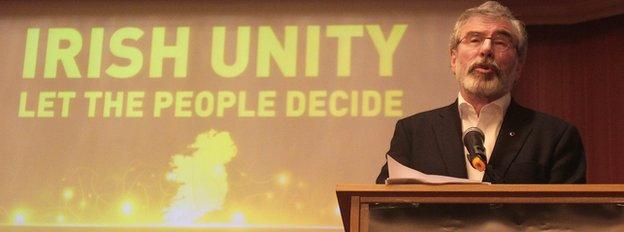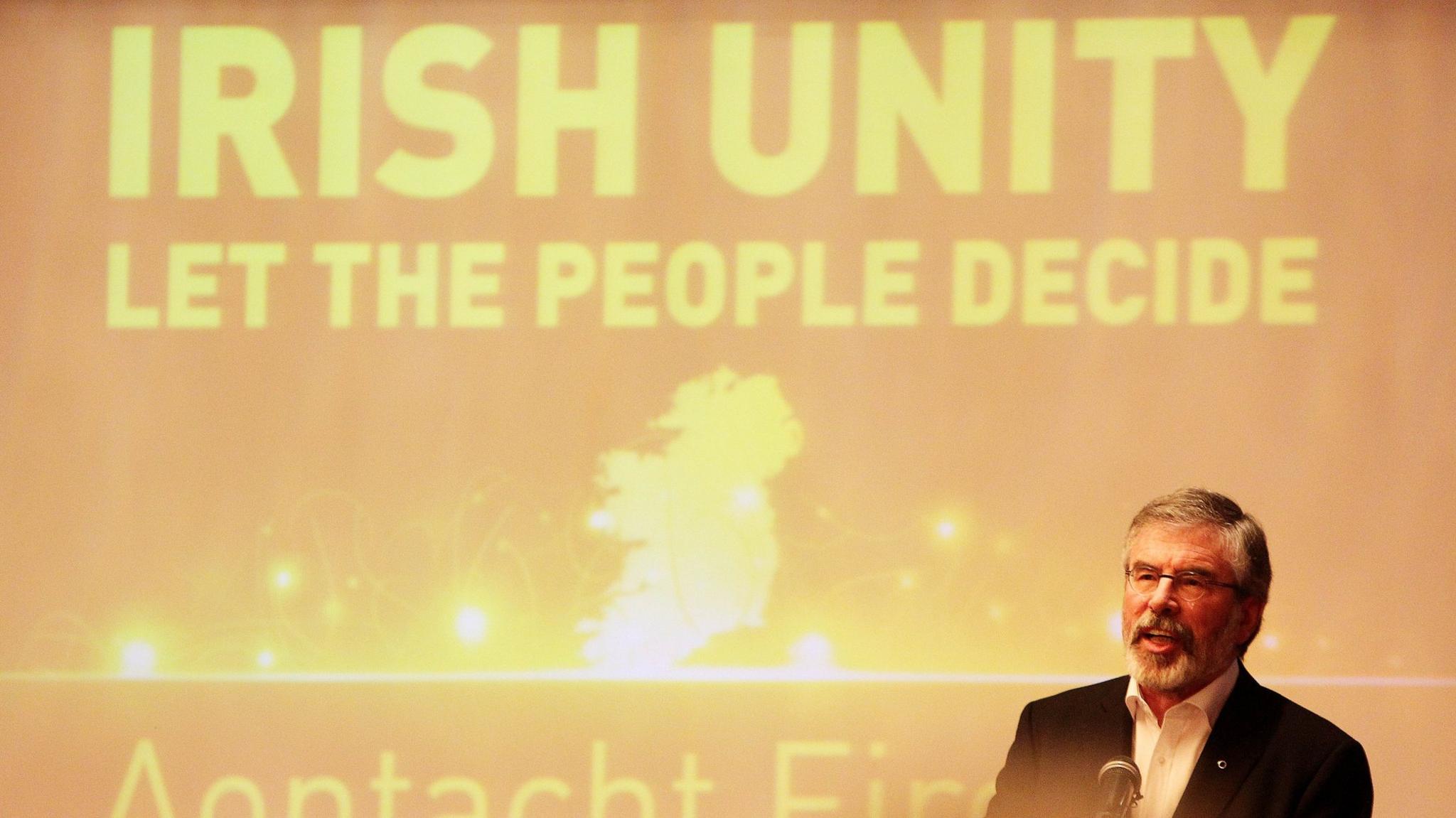United Ireland border poll call: diversions and u-turns
- Published
- comments

Sinn Fein is pushing for a border poll.
The DUP denies it has performed a u-turn. However, there certainly was a strong contrast between Peter Robinson's dismissal of holding a border poll when talking to me on Inside Politics on Friday and Arlene Foster's hint on the Nolan Show four days later that the party might call Sinn Fein's bluff over a referendum.
So what's going on?
The DUP hasn't yet made a definite decision to drop its opposition to a poll - instead the party is "having this discussion but has not reached a conclusion on the matter".
They still insist republicans talking up a border poll is "fantasy politics". That hasn't stopped Sinn Fein welcoming the DUP comments as making space for a "clear, radical and open debate in regards to the social, economic and political benefits of a united Ireland".
The Good Friday Agreement and the 1998 Northern Ireland Act give the power to call a border poll to the secretary of state (even though both the Northern Ireland secretary at the time of the agreement and the current incumbent were and are women, both documents refer to the secretary as "him").
Whether it's a him or a her, my reading of the law is that the Northern Ireland secretary "may" call a border poll at any time. However, if there's clear evidence that a majority of people in Northern Ireland want to leave the UK and join a united Ireland, then the agreement places a duty on the secretary of state who "shall" arrange a referendum.
'Negotiations'
If the poll results in a vote for Northern Ireland to remain in the UK, the agreement says a similar exercise shouldn't be repeated for at least seven years. So the seven-year stipulation isn't a requirement to automatically repeat the exercise, but a minimum period which must elapse between border polls.
Having given it some thought, the DUP could revert to last week's position, although that might look a bit like a retreat. Alternatively they could enter into negotiations over the conditions attached to a poll.
If we have a poll relatively soon, would unionists argue that the seven-year gap between referendums should be extended? That was a thought I put to Sinn Fein's Mitchel McLaughlin who responded by insisting that republicans would stand by the text of the agreement.
Another item for negotiation might be who should make a decision on future border polls. One very senior unionist source suggested to me that if a poll reaffirmed Northern Ireland's position in the UK, it should be up to a simple majority vote within the assembly to decide when and whether a future referendum might be held. Generally Sinn Fein has been keen to take powers away from the secretary of state, but I imagine republicans would be sceptical over devolving decisions on a border poll.
So if the DUP does adopt a "call their bluff" policy, and these hurdles are overcome, how soon could we have a border poll?
'A diversion'
My senior source suggested it could run at the same time as the next big election - the European election expected in June next year. If that happens Northern Ireland would actually beat Scotland to the punch, as its independence vote isn't due until autumn 2014.
But before any canvassers hit the streets, bear in mind that Theresa Villiers doesn't seem keen. A spokeswoman said the secretary of state has "no present plans to call such a poll", describing it as a diversion from pressing economic and social issues.
The four-day turn around in DUP thinking remains puzzling. The fact they haven't made a decision emphasises that holding a border poll wouldn't be without its risks.
But a border poll might boost voter registration in unionist areas - a concern raised at recent unionist forum meetings. It might also unite unionism around a campaign, rather than having different shades of unionism and loyalism at loggerheads over the union flag.
Both flag poles and border polls are about national identity, but some unionists might find a referendum easier to handle than the running battles of recent weeks.
- Published22 January 2013
